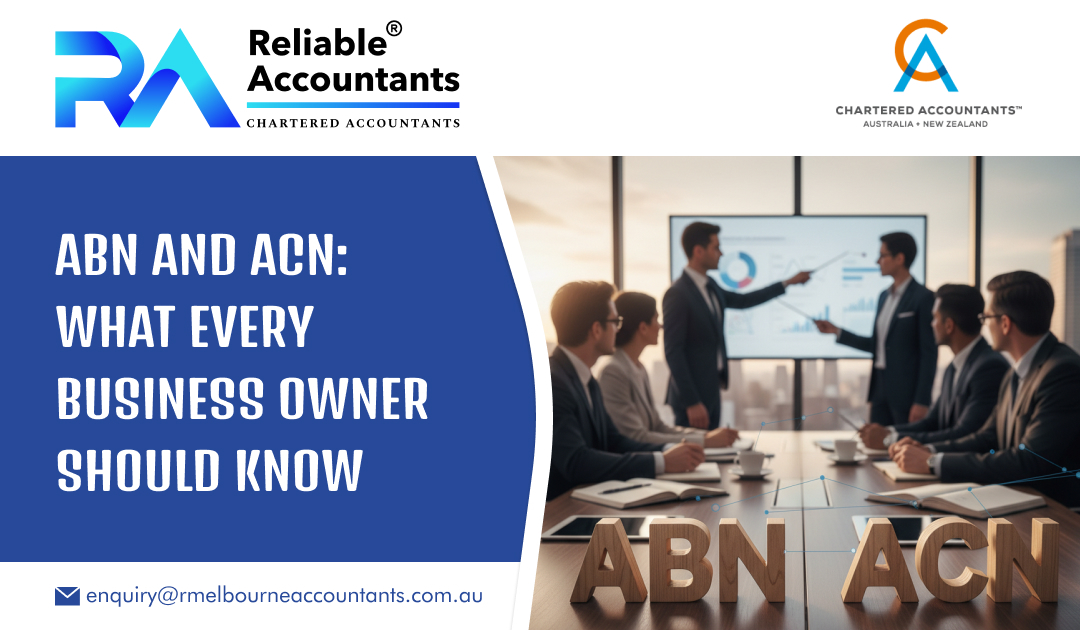Confused about ABN and ACN? You are not alone. Many Australians get stuck when it comes to choosing between ABN and ACN. The truth is that if you don’t know the difference between these two terms, it could cost you money or even get you into conflict with the authorities. So, it’s the right time to clear the confusion.
What’s the Difference Between ABN and ACN?
When applying for an Australian Business Number (ABN), you can also register for a business name, secure online authentication, and taxes such as GST and PAYG withholding, all at once. Since not everyone qualifies for an ABN, you’ll be asked a set of questions during the application process to determine your eligibility. If you are starting your business as a sole trader, providing your Tax File Number (TFN) will help speed up the process. For companies, the Australian Company Number (ACN) should be provided.
Australian Business Number (ABN) is your business’s public ID. It’s the number used by ATO to keep track of you. Whether you are a sole trader, a partnership, or a company, you must have an ABN. Without an ABN, you will not be recognised officially as running a business.
On the other hand, an ACN can be applied if you have set up your business as a company. The Australian Securities and Investments Commission (ASIC) issues this number. Companies are usually treated as their own legal entities, and ASIC uses the ACN to keep tabs on them. Your business may need an ABN, whereas only companies need an ACN. However, many of you may still have many questions regarding these two terms. No worries, you can get help from accountants in Melbourne to know what you need.
Getting an Australian Company Number (ACN)
If you intend to operate your business through a company, you must register with ASIC to obtain an Australian Company Number (ACN) when you establish your company. You need to secure your ACN before applying for an ABN and other tax registrations.
To become a company director, you will also need to apply for a Director Identification Number (director ID). This personal ID is required to verify your identity with the Australian Business Registry Services (ABRS). Each director must apply for their own director ID.
When Do You Need an Australian Business Number?
An ABN is an 11-digit unique identifier that makes interaction between businesses and all levels of government easier. You will need an ABN to:
- Operate in the GST system, including claiming GST credits
- Avoid Pay As You Go (PAYG) tax on payments you receive
- Verify your business identity when ordering and invoicing
- Gain access to government online services for your business
- Be recognised as a gift-deductible recipient or an income tax-exempt charity.
Make sure to keep your ABN information updated in the Australian Business Register. If you close your business, you must cancel your ABN. Before doing so, make sure that you have met all your lodgment, reporting, and payment obligations, such as submitting activity statements and PAYG withholding reports. Apart from this, as a business owner, you may have to deal with a number of tax matters, so make sure you are familiar with the latest tax rules. However, if you find it difficult to handle, you can engage a tax return accountant.
How to Apply for or Cancel an ABN?
You can apply for, cancel, or request a reissue of an ABN online using the Australian Business Register or through your registered tax agent or BAS agent.
Conclusion
If you are operating your business as a sole trader, trust, or partnership, you only need to apply for an ABN. However, if you have registered as a company, you may need both an ACN and an ABN. For more information, you can get in touch with Reliable Melbourne Accountants.
Other Services:

